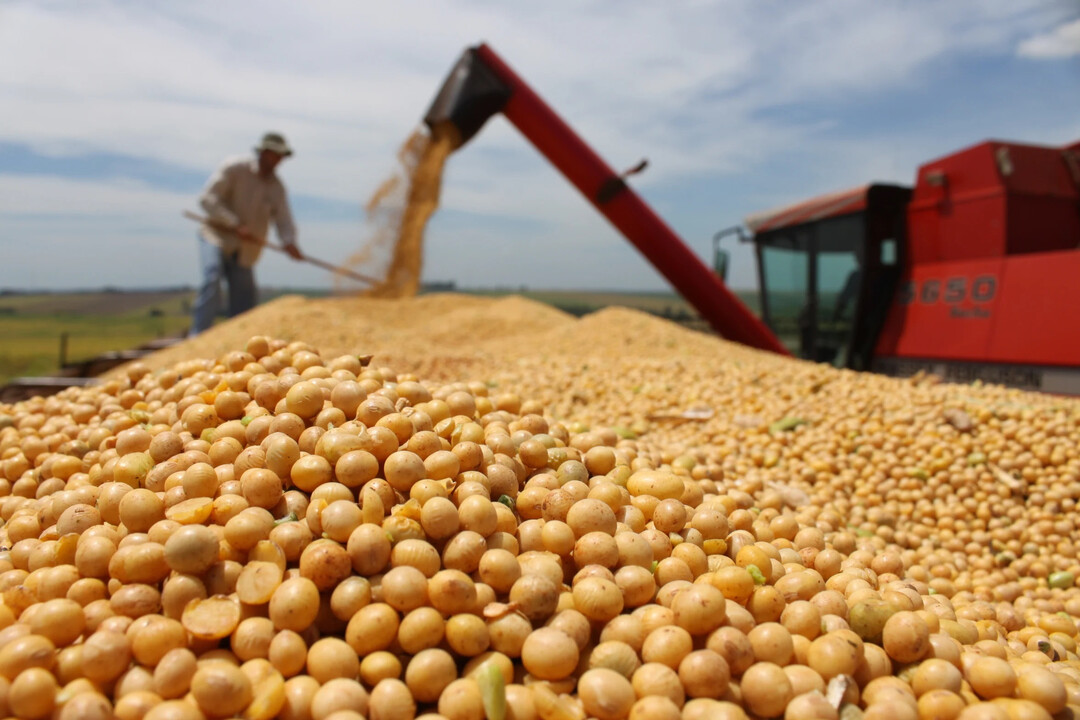
Paraguay has witnessed an astounding 935% surge in soybean production over the past 35 years, transforming its agricultural landscape and establishing the crop as a central pillar of its economy. Starting from a modest 1 million tons in the late 1980s, the nation's soybean output has impressively climbed to over 11 million tons in the 2023/2024 harvest season. This remarkable growth trajectory began in the early 1970s with a mere 75,000 tons, fueled by consistent investment and advancements in agricultural technology. The early 2000s marked a significant acceleration, with production surpassing 3.5 million tons, followed by a breakthrough of 7.1 million tons in 2010/2011, firmly cementing the soybean industry's crucial role in Paraguay's agricultural economy.
The journey has not been without its challenges. A severe drought in 2011/2012 caused a sharp decline in production to around 4 million tons. However, the sector demonstrated remarkable resilience, rebounding to over 8.2 million tons the following year. Subsequent fluctuations due to climatic variations and other external factors have occurred, yet the overall upward trend has persisted. Another significant dip to 4.3 million tons was recorded in 2021/2022 due to adverse weather conditions, but the industry once again showcased its robust foundation by recovering to over 9.8 million tons in 2022/2023.
Data from the Paraguayan Chamber of Grains and Oilseeds Exporters (Capeco) reveals that over 8 million tons, representing more than 72% of the recent harvest, were exported. This highlights the strong competitiveness of Paraguayan soybeans in the international market and its substantial contribution to national economic growth. Approximately 2.6 million tons (23%) were processed domestically, while around 480,000 tons were allocated for domestic consumption. The surge in soybean production has been instrumental in elevating Paraguay's status as a major soybean exporter in South America, ranking among the top five globally alongside powerhouses like Brazil and Argentina.
Despite the promising trajectory of the soybean industry, challenges loom on the horizon. A report by economic analyst Rubén Alderete points to emerging headwinds from declining international soybean prices and a global slowdown in demand. In 2024, while Paraguay's soybean export volume increased by 23%, the total export value decreased by 7.4% year-on-year to $3.17 billion due to the price slump. This indicates that increased export volume may not always translate directly into greater national economic growth. Alderete cautions that reduced foreign currency inflows could strain the nation's available resources and potentially weaken the growth impetus provided by exports.
In light of these evolving dynamics, Paraguay must prioritize strategies for the sustainable growth of its soybean industry. Beyond simply increasing production, there is an urgent need to develop higher value-added products, diversify export markets, and establish efficient logistics and distribution systems to enhance competitiveness. Furthermore, proactive measures to mitigate the impacts of climate change and the adoption of environmentally friendly farming practices are crucial for ensuring long-term production stability. The ability of Paraguay's soybean industry to navigate these challenges and maintain its growth momentum will be closely watched.
[Copyright (c) Global Economic Times. All Rights Reserved.]






























